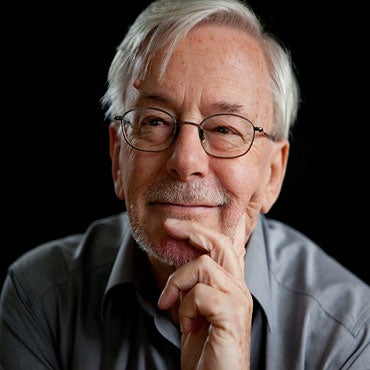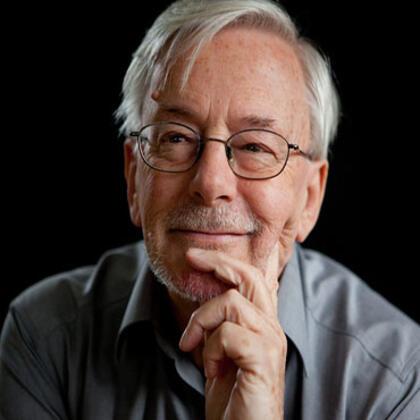The Quest for Ultimate Reason
Share
- Details
- Transcript
- Audio
- Downloads
- Extra Reading
Religion and Philosophy Descartes, Leibniz and Spinoza. The division between mind and matter. Philosophy declares its independence. Is Cartesian dualism a dead horse?
Download Transcript
THE QUEST FOR ULTIMATE REASON
Professor Keith Ward
Descartes, Leibniz, and Spinoza; the age of Rationalism.
If there is one philosophical view that is almost universally disparaged in the modern world it is 'Cartesian Dualism'. Everyone knows it is wrong, and some philosophers are scandalised by it. 'Dualism must be avoided at all costs', writes the American philosopher Daniel Dennett. And most psychologists and neurologists, even when they talk about and seem to admit the existence of, consciousness and its contents - dreams, images, sensations, thoughts and feelings - hasten to add, 'But of course I am not a Cartesian dualist'.
This is very sad, because Descartes was trying to respond to the scepticism of writers like Montaigne, who held that we could not know anything. He was trying to find at least one thing of which we could be absolutely certain. As we all know, he found it in the proposition, 'I think, therefore I am'. But the modern world not only finds it possible to doubt that proposition. It completely rejects it as incoherent.
I will say straight away that I am not part of this modern world. I find Descartes' arguments convincing. But I have to say that furtively, for fear of the scorn of my philosophical colleagues, 'No wonder that man became a theologian', they say, 'He was, after all, a Cartesian dualist'. However, there is no safety in theology either, since most theologians, also, have nothing good to say about Descartes. 'Humans are psycho-physical unities', says one of the most respected physicists and theologians, John Polkinghorne. And he contrasts his own position, of 'dual-aspect monism', with dualism. Dualists, it seems, are hard to find.
And yet there are more of us than you might think, lurking in the philosophical undergrowth. And I want to do what I can to retrieve Descartes' reputation. Let me start by making it quite clear that Descartes did think that humans were psycho-physical unities. 'I am not present in my body merely as a pilot is present in a ship', he says in the Sixth of his 'Meditations on First Philosophy'. 'I am most tightly bound to it, and as it were mixed up with it, so that I and it form a unit'.
Humans are compounds of mind and body, and it is not natural or proper to them to be anything else. Plato did think that souls might live a more perfect existence if they escaped from their bodies. Descartes did not. Descartes was a Catholic, and there is no reason to think that he disagreed with Aquinas' view of the soul, which was that every intellectual soul is the soul of a particular body, and is incomplete without it.
So is Descartes a dualist at all, rather than a dual-aspect monist? It would seem very odd to call the 'Father of Dualism' a non-dualist. But we must be quite clear that he thought humans were compound unities, not just composed of two contingently connected and pretty self-sufficient parts. Perhaps an analogy, though not a perfect one, would be water, which is a compound of hydrogen and oxygen, but is nevertheless a compound unity. It could be dissolved into its parts; but if it were, it would be no longer water. So if a Cartesian body and soul were separated, it would no longer be a human being. It would be a dead body and a grievously immobilised and isolated soul. To be a disembodied soul is not a desirable fate, and Descartes did not desire it.
One of the most interesting indicators of Descartes' real view of the matter is to be found in a letter he wrote to Princess Elizabeth of Bohemia on 28 June, 1643. Descartes writes: 'I would ask your Highness to hold yourself free to ascribe 'matter and extension' to the soul; for this is nothing else than to conceive the soul as united to the body' ('Correspondence', number 310). Descartes certainly wants to make a distinction between consciousness and extension, and to say that these are two different parts of the soul. The distinction marks two importantly different sorts of properties. But this quotation makes it quite clear that he does not want to say that soul and body are two quite different substances which are connected only through some relatively external causal law. Extension - that is, all bodily properties - can be considered as a property of the soul. Descartes, too, thinks of the human person as a 'psycho-physical unity'. He is not the sort of dualist many people think he is.
One other thing that Descartes was certain of - and it was a certainty he shared with the other classical 'Rationalist' philosophers, Leibniz and Spinoza - was that the ultimate reality is not material. The Rationalists rejected old Scholastic modes of thought, and distanced themselves from the traditions of Aristotle and Aquinas. They wanted to clear away the baggage of traditional philosophy, and start again from a newer, firmer basis. The model was the new mathematics, and the aim was to find a wholly rational analysis of the nature of reality, starting from intuitively clear axioms and proceeding by closely argued stages to a complete description of the world.
Nevertheless, their aim was the same as that of the Scholastic philosophers. They were all looking for a 'Theory of Everything', a set of necessary truths from which all the laws of nature, and in the end even all the particular events of nature, could be derived. Many modern cosmologists have the same goal in mind. Modern science, and especially mathematical physics, suggests that the basis of perceived reality lies in a set of very precisely integrated mathematically describable laws. If we could trace those laws back to their ultimate root, we might find that there is just one set of consistent laws that generates exactly this universe by necessity.
A favoured candidate in modern physics is that universes, perhaps only this universe or perhaps many other universes too, originate by quantum fluctuations in a vacuum. There might be just one set of consistent quantum laws that generate universes by some sort of internal necessity.
There are great problems with such dreams, not least that the universe seems to be contingent in many of its details, and that there seems to be more than one necessary set of mathematical axiomatic systems. As I mentioned in the previous talk, the best that Steven Weinberg came up with was that there may be just one consistent logically isolated mathematical theory that is compatible with the existence of intelligent beings. That would be an impressive finding, for it would show that intelligent beings could only exist in a universe like this. But how could we know that there are no possible intelligent beings of quite a different sort, as yet unimagined by us? Or why should that logically isolated theory exist, as opposed to many other possible theories that would not be compatible with intelligent life?
One recent hypothesis is that every possible mathematical theory exists, and all the actual worlds they can produce are produced. We are in just one of those universes. There may be many other universes, some of them with other sorts of intelligent beings, and some with no complex organic forms at all. But we still have the question of where or in what sense mathematical theorems actually exist, and of how they give rise to actual, physical, universes.
One thing is clear. In these scenarios, we have moved far beyond saying that the ultimate reality is physical - consisting of points or particles in one unitary space-time. We have moved into a realm beyond any space-time, from which all space-times are generated. Matter, in Descartes' sense of extension and location in public space, is not ultimate. It springs from a transcendent sphere, which is more akin to a realm of pure, necessary, and eternal mathematical truths, and yet which has the power to generate one or more forms of space, time, and matter.
Whether or not you call this a realm of Mind, it is certainly not a realm of matter. Possibly Spinoza is the philosopher who comes nearest to the dreams of modern cosmology. The realm of the ultimate, for him, was far beyond what we call intellect and will. It certainly does not know in the way humans do, by observation and discursive, exploratory thinking. It does not will in the sense of choosing between alternative possibilities in order to obtain some purpose yet to be achieved. It is the necessary basis of infinite worlds, and from it every possible world is actualised. All exists by absolute necessity, and all must be exactly as it is. Consciousness and extension, mind and matter, are just two of the infinite modes of that reality, the Ultimate Self-existent Substance.
It would be difficult to call Spinoza a 'dualist'. Some call him a monist or pantheist, since he thinks there is only one substance, which he calls 'God or Nature'. But he thinks that substance has infinite modes or appearances or ways of expressing its necessary nature, so it is a monism with extraordinary internal diversity. Some might call it a substance-monism together with a property-pluralism, an infinite diversity of different properties. Spinoza would have no difficulty in saying that mind and body are different, different sorts of properties. But he would not agree that there are just two basic sorts of properties, or that either of these sorts could exist entirely on its own, as a 'substance' in the sense of something that depends on nothing else for its existence.
Yet while Spinoza denies intellect and will of the primary substance, the whole point of his 'Ethics' is to advocate a life of liberation from desire and attachment to individual ego. And liberation is achieved by 'the intellectual love of God'. He spells this out, all too briefly, by saying that 'God is absolutely infinite, that is to say, the nature of God delights in infinite perfection...accompanied with the idea of Himself as cause, and this is what we have called intellectual love' ('Ethics', Proposition 35).
So the cause of all things is infinitely perfect, and delights in that perfection. It is impossible to frame this conception without thinking of the ultimate Substance as conscious and capable of delight, that is, as an intellectual being. Moreover, 'the intellectual love of the mind toward God is part of the infinite love with which God loves Himself' ('Ethics', Proposition 36). Delight in the infinite perfection of the cause of all things is an objective reality in which human minds can share, and which in fact they, in their own way, express and manifest.
These are not the words of a materialist or of an atheist. They are the words of someone who thinks that the ultimate reality is best conceived by any fully rational human mind as perfect and blissful, as necessary and eternal, as supremely rational and beautiful. God may not be very like human minds, and may be very far from a supernatural person who chooses to answer some prayers and not others, or who performs special favours to those who flatter Him sufficiently. But God is ultimate, perfect, and immaterial Mind. That, and not some sort of matter or blind energy, is the cause of the universe and its ultimate nature.
In 1656 Spinoza was excommunicated from the Synagogue in Amsterdam. He was felt to have strayed too far from the God revealed in the Hebrew Bible. And indeed one of the consequences of allowing Reason free reign, and of seeking to cast off all old authorities and set all human knowledge on a new basis, was the encouragement of a generally sceptical or at least critical attitude to traditional or literalistic interpretations of Holy texts.
Aquinas had found revelation to be a natural completion of Reason's search for truth, and freely submitted to the teaching authority of the Catholic Church. But for the new Rationalists of the seventeenth century, revelation itself, and the interpretation of it by religious authorities, had to be put in question, along with everything else.
The other major Rationalists, Leibniz and Descartes, felt little problem in accepting some form of revelation. Leibniz was a Protestant with a keen interest in Church unity, and Descartes was a Roman Catholic. Descartes wrote: 'The Lord has made three marvels: things out of nothingness; free will; and the Man who is God' (from a notebook begun in 1619, and copied out by Leibniz).
Yet in their philosophical works revelation does not play a major role, and it is clear that they felt free to interpret revelation in line with their general philosophy. This was no doubt because they agreed that reason shows the ultimate reality to be God, the one and only necessary and perfect Mind, and any true revelation from God could not contradict the findings of reason, which God had implanted in human minds.
There is a slight problem in the fact that the three great Rationalists all knew that their systems were necessarily and deductively certain, and yet they all disagreed with one another. Spinoza knew there was only one substance, that included all things in itself. Leibniz knew that there were an infinite number of substances - 'monads' - but that they were all of the same general sort, having the nature of mind. They do not really causally interact, though they appear to do so - 'Bodies act as though, per impossibile, there were no souls; and souls act as if there were no bodies, and both act as if each influenced the other' (Monadology, proposition 81). In fact, however, all monads change in accordance with purely inner principles or entelechies, and God has arranthem in pre-established harmony. Descartes, on the other hand, knew that there were many substances, all of them causally interacting with each other, but that they fell into two different basic kinds, minds (souls) and bodies.
Something must have gone wrong somewhere! Having the advantage of hindsight, it is not too difficult for us to say what it is. Reason alone cannot give definitive answers to questions about what is real. Reason drives us to seek as many explanations of the world as we can, but when it comes to really ultimate explanations, it seems to arrive at a set of incompatible alternative possibilities, between which it is unable definitively to decide. For example, reason cannot decide whether everything is necessarily what it is (the thesis of determinism, espoused by Spinoza), or whether some things are contingent and could logically have been otherwise (Leibniz' preferred alternative). It cannot decide whether humans have free will, or what it exactly it would mean for them to have it. It cannot decide whether consciousness is the ultimate reality or not (all the Rationalists agreed that it is). It cannot decide whether ultimate Mind, if there is one, has revealed anything reliably or not. It cannot decide whether the universe is finite or infinite. And it cannot even decide whether the universe is objectively rational or a product of chance, 'born of night', in Aristotle's phrase.
That does not mean that reason is useless. It means that reason cannot definitively resolve ultimate questions about human and cosmic being. One of the consequences of philosophical Rationalism is that we are now less confident of what Reason can do. That does not make reason less important. Reason demands that we should seek to make our knowledge as comprehensive as possible, make our beliefs consistent and compatible with the best available knowledge, and be prepared to justify those beliefs in some intelligible way. What we cannot do is pretend that reason alone can resolve all the really deep questions - questions, especially, of the nature of ultimate reality, of the nature of the human person, and of how to live well.
Descartes stressed clarity and distinctness as the marks of rational knowledge. But there are many aspects of human experience, and ones that he drew attention to, that resist clear description and analysis into distinct and isolatable parts. In the colourful and value-rich field of personal experience there are forms of understanding that require discernment, judgment, and empathy, rather than the dispassionate objectivity that is characteristic of experimental science. The methodology of the natural sciences may well turn out to be inadequate for the understanding of human consciousness. Yet both the material world and the world of consciousness require the use of reason, and that in turn requires that sensitivity as well as clarity should be involved in the use of reason.
Careful attention and sensitivity is needed, and a lively sense of the frailty of human thought, if we are to have any hope of arriving at an adequate metaphysical view. In the study of physical phenomena, close observation and repeated experimentation is essential. The natural sciences have built up a cumulative body of knowledge that is well-established and firmly founded. But the natural sciences tend to ignore all questions of value, as lying outside their purview. Since the idea of purpose is the idea of processes aiming at states of value, purpose is inevitably excluded along with value. And for that reason the fact of consciousness, of subjective experience, which desires and enjoys values and appears freely to create purposes and goals, remains a problem for natural science. There is no satisfactory scientific way of explaining the fact and nature of consciousness in terms of publicly observed brain-states or behaviour.
This is Descartes' main point. Phenomenal states - sensations, feelings, and thoughts - can be distinguished from physical states. Further, many mental states are what he calls 'intellectual acts'. Some thoughts may seem to just come to me. But I can also actively think, direct my attention, and work hard at extending a train of thought in new directions. This sense of agency, of bringing something about by an effort of attention and will, leads me to say that there are not merely thoughts occurring; there is an agent who - sometimes, if not always - actively thinks.
It does not follow that in any person it is always the same agents who thinks. It is possible that there could be many agents of bits of thought, especially if an agent is identifiable with a specific part of the brain. Yet the continuity of memory and intention, by which 'I' remember what I set out to do years ago, and resolve to continue to do in future, strongly suggests some form of agent-identity within one consciousness. I am the same agent who possesses a continuous chain of overlapping memories, experiences, and intentions, which has been modified over time, at least in part, by my past acts.
Having distinguished thoughts, which have no extension or observable location in public space, from physical, spatially locatable and publicly observable properties, and having posited a continuing agent who thinks, the question for Descartes is: can thoughts exist without extension? Can there be conscious states occurring without any physical states?
For him, the answer is clearly 'yes', for in God he already has a paradigm of consciousness without extension. And if thoughts can exist without matter, then a mental and immaterial agent could logically exist also. It is important, however, to see that the questions, 'do thoughts exist without matter?', and 'is the agent of thought identical with a material thing (perhaps the brain)?', are different questions. Perhaps thoughts never exist without brains; but they could, and in God they do, or something very like them, some sort of conscious state, does. In humans they may; but if they do, they will do so in a truncated and incomplete way. For thoughts are about physical realities, and are formulated in languages learned in social, physically embodied, communities. So human souls are truly and properly physically embodied. Yet they also have a natural affinity with the non-physical reality of God, in relation to which their fulfillment lies. And they may be embodied in different ways (as each human life progresses from infancy to old age, they are).
The important point for Descartes is that in the psycho-physical unity which is the human person, conscious agency has ontological and causal distinctness. The soul is not merely a chance by-product of physical processes, even though it may emerge from physical processes (as we now know, by evolution). It is a distinctive sort of reality, and has some causal efficacy, even though the forms this takes are conditioned and limited by the physical processes within which it exists.
That is sufficient for Cartesian dualism. There are many Cartesian beliefs that we may feel unhappy with - the idea that nature is a machine, that animals do not have consciousness, that the pineal gland is the causal link between conscious, phenomenal states, and the physical world. There are unresolved problems about how conscious states causally affect physical states. On the other hand, we may in the end have to say that all causal connections just have to be accepted as facts, and that physical causal laws are not so tight and complete as to exhaust all possible causal connections.
The causal laws of physics may be loose enough to permit causation by conscious states in suitably complex physical contexts like brains. It may even be that a complete causal account of nature would have to include forms of purposive and goal-directed causation that are characteristic of conscious minds, but from which modern physics abstracts. We do not yet know enough about the causal bases of physical change to be definite about this, but modern science is much more tentative than it used to be, and seems to have discarded entirely the closed and predictable machine-view of nature that the Rationalist philosophers had to contend with.
There is a basic problem in modern science about the status of value, purpose and consciousness. They have to enter into any complete account of the nature of things, but the natural sciences largely ignore them. One thing all the classical Rationalists agreed about was that value, purpose, and consciousness are closely connected and of fundamental and irreducible importance. If human reason is a reliable guide to the nature of things, the ultimate basis of reality must, they thought, lie in a supreme consciousness which unites in itself necessity and value, the inevitability of being as it is and the supreme case of all the values that are found partially and imperfectly in the finite world. From that being the finite universe must originate, whether by Spinozistic inner divine necessity, by Leibizian 'fulgurations' (literally, lightning-flashes), or Cartesian determinations of unrestricted divine will.
I doubt whether one of these fundamental viewpoints is more obviously rational than the others. Yet humans rightly wish to adopt a rational view, and the question is whether we can arrive at a simple, fruitful, comprehensive, elegant model that can integrate all the various aspects of human experience in one general interpretative scheme. It will be a scheme in which observation and desire, value and purpose, matter and consciousness, form an integrated, coherent, and plausible whole.
For some modern thinkers, like E. O. Wilson and Daniel Dennett, this ideal of consilience between what we may call the personal and the impersonal objects of human knowledge is to be achieved by reducing the personal to the impersonal. But that is far from being the only, or even the most plausible, option. A truer consilience would preserve the reality of both personal and impersonal worlds, and integrate them in a compelling way.
Of course the seventeenth century Rationalists did not achieve a final true metaphysics. One thing they unwittingly showed was that final truth may be unobtainable by human minds, and that we have to make to do with the provisional. But the general form of consilience they suggested seems to me very much on the right lines. In a universe that is intelligible to extent that this one is, and in which conscious beings capable of aiming at valued goals of action have emerged by the outworking of natural processes, it seems most reasonable to posit that nature itself is intelligible and aimed at the realisation of specific sorts of value, which could perhaps have existed in no other possible universe.
If that is so, then the ultimate causal basis of this universe is not blind chance, but an Intelligence which is good, at least in the sense that it contains, envisages, or aims at, states of intrinsic value. This, wrote Leibniz, is a universe which is 'the means of obtaining as much variety as possible, but with the greatest order possible' (Monadology, proposition 58). Its basis is a blissful and intelligent consciousness, which in some way expresses itself in, but is different from, any space-time or anything in space-time. That, I suggest, is the only dualism Descartes desires. For the highest destiny of humans is to share in that divine consciousness, while also being creatures of dust and desire. If that is Cartesian dualism, I will sign up to it today!
©Professor Keith Ward, Gresham College, 18 December 2007
This event was on Tue, 18 Dec 2007
Support Gresham
Gresham College has offered an outstanding education to the public free of charge for over 400 years. Today, Gresham plays an important role in fostering a love of learning and a greater understanding of ourselves and the world around us. Your donation will help to widen our reach and to broaden our audience, allowing more people to benefit from a high-quality education from some of the brightest minds.


 Login
Login






